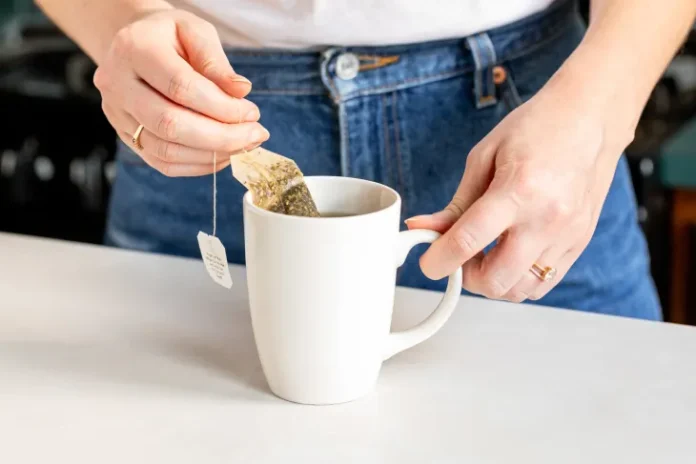Tea bags have raised health concerns primarily because of the materials used in their packaging and the potential contaminants they might contain. Let’s look at the key concerns associated with tea bagged tea:
Reasons Tea Bags May Be Harmful to Health:
1. Microplastics in Tea Bags
Many modern tea bags are made from plastic or contain plastic components (like nylon or polypropylene) to seal them. When exposed to hot water, these bags may release microplastics into your tea. Microplastics can accumulate in the body, potentially causing:
- Inflammation
- Hormonal imbalance
- Disruption in metabolism
A study found that steeping a single plastic tea bag can release billions of microplastic particles into the tea, which are harmful to both health and the environment.
2. Bleaching Agents and Chemicals
Paper tea bags are often treated with chemicals like:
- Chlorine: To bleach the paper.
- Epichlorohydrin: A chemical to make the bag waterproof, which, when mixed with water, can release carcinogenic compounds.
These chemicals may leach into your tea, especially when brewed at high temperatures.
3. Lower Quality Tea Leaves (Tea Dust)
Tea bags often contain low-grade tea dust or fannings (the smallest particles from tea processing). These tea particles lose essential oils and antioxidants, meaning you get fewer health benefits compared to loose-leaf tea. In addition, lower-quality leaves may contain more pesticides or contaminants.
4. Toxic Flavorings and Preservatives
Some flavored tea bags contain synthetic flavorings, preservatives, or additives that might not be disclosed on the label. These chemicals can contribute to:
- Allergic reactions
- Digestive problems
- Long-term health risks like hormonal disruptions.
5. Harmful Packaging
Tea bags often come individually wrapped in plastic packaging, adding more potential exposure to harmful plastics and environmental pollution.
Healthier Alternatives to Bagged Tea:
- Loose-Leaf Tea: It retains more nutrients, antioxidants, and aroma.
- Herbal Infusions from Whole Ingredients: Use fresh herbs like mint, lemongrass, ginger, or tulsi for tea.
- Reusable Tea Infusers or Strainers: These are eco-friendly and free from plastic contaminants.
- Clay or Glass Kettles: Using them ensures no harmful chemicals seep into your drink.



